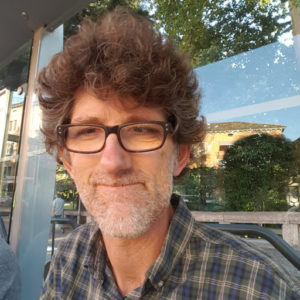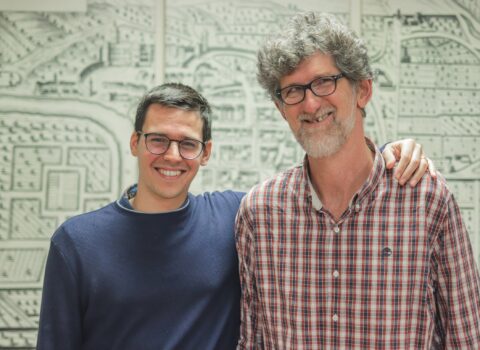Luciano Serafini

Head of Data and Knowledge Management Research Unit at FBK and EURAI Fellow, his reaserch interests include Knowledge representation, Artificial intelligence, Semantic Web, Applied Ontology and Neuro-Symbolic architectures.
His main scientific contributions can be summarised as follows:
- Multi-Context systems. In the early stage of his scientific career Luciano Serafini was the major contributor, together with Fausto Giunchiglia, of an approach to contextual reasoning called “Multi Context Systems”. This research direction is still active as shown by the recent publication. During 30 years, Multi-Context Systems has been applied to various area of KR&R, Semantic Web, Database, Modular Ontologies and Multi-Agent Systems. The original formulation of MC-system has been extended and modified generating a number of systems for distributed knowledge representation, such as Distributed Description. Logics, Distributed First Order Logic, Contextualized Knowledge Repository, Contextualized ontology web language (C-OWL).
- Ontology Semantic Matching. In the era of the semantic web, Luciano Serafini was the first to propose to encode the problem of ontology matching in a Satisfiability problem. This idea, implemented in an algorithm called CtxMatch, has influenced a large set ofsystems for ontology matching that fall under the category called “semantic matching”. One of the most cited paper on semantic matching has been directly derived from the CTXmatch algorithm.
- Quantum Programming Language. Between 2000 and 2004 he collaborate to thedevelopment of a language for Quantum Computing. He collaborate to the definition of the Q language for quantum programming and the relative compiler on a quantum gatecircuits. The proposal has received a particular attention in the community accumulating 180 citations.
- Integrating machine learning and automated reasoning. In the last years he getinterested in approaches that integrates logical reasoning and machine learning, which leads him to be engaged in statistical relational learning and neuro-symbolic integration architectures. During the visit of the Research Centre for Machine Learning at City University London, he started the development of a new architecture that integrates neural networks and fuzzy logics, called Logic Tensor Networks. The system has received a particular attention from the scientific community collecting more than 100 citations in since its publication.
- Understanding Multimedia Content. One of the main tasks in which the above technologies are applied and further developed is the task of understanding language and vision with the help of background (logical) knowledge (e.g. aligning text) and pictures exploiting ontologies.
- Online Learning Planning domains from acting and sensing. In the last years he started a research line in learning planning domains by acting in the real world and observing the effect via sensors. The research is rather promising.
Spotlight's articles
-
 November 8, 2023Leonardo Lamanna wins an AIxIA 2023 awardLeonardo Lamanna is the 2023 winner of the "Marco Cadoli" neo-doctoral research award.
November 8, 2023Leonardo Lamanna wins an AIxIA 2023 awardLeonardo Lamanna is the 2023 winner of the "Marco Cadoli" neo-doctoral research award. -
 April 27, 2022AAAI 2022 @ FBKThe FBK scientist Luciano Serafini has become fellow of the European Association for Artificial Intelligence (EURAI). Head of Data and Knowledge Management Research Unit at FBK, his reaserch interests include Knowledge representation, Artificial intelligence, Semantic Web, Applied Ontology and Neuro-Symbolic architectures.
April 27, 2022AAAI 2022 @ FBKThe FBK scientist Luciano Serafini has become fellow of the European Association for Artificial Intelligence (EURAI). Head of Data and Knowledge Management Research Unit at FBK, his reaserch interests include Knowledge representation, Artificial intelligence, Semantic Web, Applied Ontology and Neuro-Symbolic architectures.